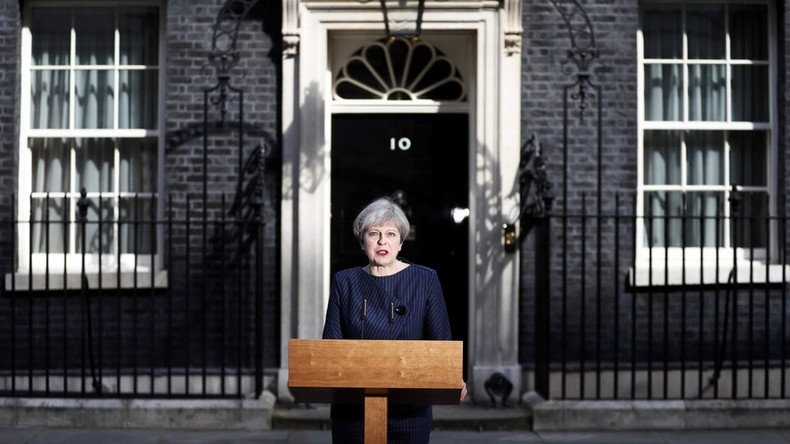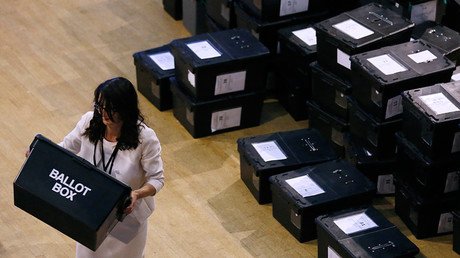Prime Minister Theresa May has called for a UK general election to be held on June 8.
May says she has only "recently and reluctantly" come to the conclusion that a general election is necessary.
"Since I became prime minister I have said that there should be no election until 2020, but now I have concluded that the only way to guarantee certainty and stability for the years ahead is to hold this election and seek your support for the decisions I must take."
May added her government has achieved its mandate after the Brexit referendum, saying there can be “no turning back.”
"If we do not hold a general election now ... political game playing will continue, and the negotiations with the European Union will reach their most difficult stage in the run-up to the next scheduled election.
"Division in Westminster will risk our ability to make a success of Brexit and it will cause damaging uncertainty and instability to the country.
"So we need a general election and we need one now."
May says there should be "unity" in Westminster over Brexit, but there is not. She says Labour has threatened to vote against the final deal, the Liberal Democrats want to bring parliamentary business to a standstill and the Scottish National Party (SNP) want to vote against the legislation that formally repeals Britain's membership of the EU.
She says she is not prepared to allow her opponents to jeopardize Brexit negotiations.
"Our opponents believe that because the government's majority is so small, our resolve will weaken and that they can force us to change course. They are wrong.
"They underestimate our determination to get the job done and I am not prepared to let them endanger the security of millions of working people across the country."
May’s spokesperson said the PM had the full backing of her ministers for an early election and that she told the Queen of her plans by telephone on Monday.
The Brexit timetable will be unaffected by the early election, and officials and secretaries of states remain in place, the spokesperson added.
May says she will move a motion in the Commons on Wednesday proposing the election.
“It will be a choice between strong and stable leadership in the national interest, with me as your prime minister, or weak and unstable government under a coalition led by Jeremy Corbyn.”
She added: “It was with reluctance that I decided the country needed this election but it is with conviction that I say it is necessary … so tomorrow let the House of Commons vote for an election, let everybody put forward their proposals for Brexit and their vision for Government.”
May could be constrained by the Fixed Term Parliament Act, which sets out the date of the next general election in 2020. Under the act, there are two ways parliament can be dissolved ahead of that date.
The first is if parliament votes to do so with a two-thirds majority. May will need 434 votes - 104 more than the current number of Conservatives in parliament - so would require Labour’s backing. Labour leader Jeremy Corbyn has previously said he would vote for a general election.
The second way an early vote can be called is if there is a vote of no confidence in the government.
Corbyn says he welcomes May’s decision to “give the British people the chance to vote for a government that will put the interests of the majority first.”
“Labour will be offering the country an effective alternative to a government that has failed to rebuild the economy, delivered falling living standards and damaging cuts to our schools and [National Health Service].
“In the last couple of weeks, Labour has set out policies that offer a clear and credible choice for the country. We look forward to showing how Labour will stand up for the people of Britain.”
Tim Farron, the Liberal Democrat leader, said: “This election is your chance to change the direction of your country.
“If you want to avoid a disastrous hard Brexit. If you want to keep Britain in the single market. If you want a Britain that is open, tolerant and united, this is your chance.
“Only the Liberal Democrats can prevent a Conservative majority.”
Former prime minister David Cameron has hailed May's decision as "brave" and "right."


